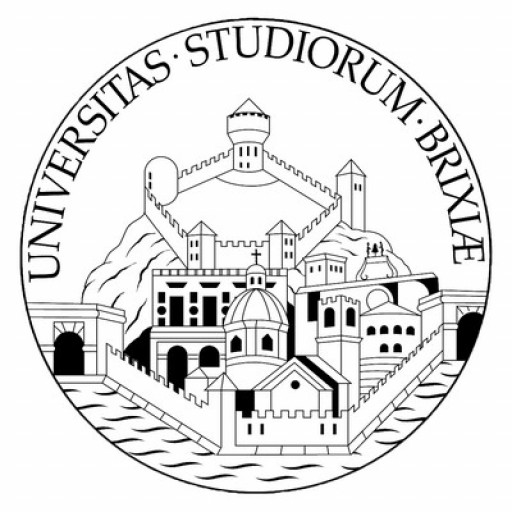Photos of university / #fachhochschule_kiel
The Bachelor's degree programme in Industrial Engineering (consecutive) at Kiel University of Applied Sciences is designed to equip students with a comprehensive understanding of the core principles and practices that drive modern industrial processes and systems. This programme emphasizes an interdisciplinary approach, integrating engineering, management, and technology to prepare graduates for a versatile career in various industrial sectors. Throughout the course, students acquire essential skills in areas such as production planning, process optimization, systems analysis, supply chain management, and quality assurance. The curriculum combines theoretical knowledge with practical application, fostering problem-solving abilities and innovative thinking necessary to optimize complex industrial operations. Students will also gain proficiency in modern tools and software used in industrial engineering, enabling them to analyze data and develop efficient solutions. The programme encourages the development of soft skills such as teamwork, communication, and project management, which are vital for leadership roles in diverse work environments. With a focus on sustainability and digitalization, students are introduced to contemporary trends shaping the future of industry, including automation, Industry 4.0, and eco-efficient manufacturing processes. The interdisciplinary nature of the programme enables graduates to work across various functions within manufacturing, logistics, and service industries, making them highly adaptable in a competitive job market. Practical training is an integral part of the curriculum, often involving internships and projects with industry partners, providing valuable real-world experience. Graduates of this programme are well-prepared for entry into advanced studies in engineering or management, or directly into technical and managerial positions in industry. The programme aims to foster innovative thinking, technical expertise, and responsible engineering practices, aligning with the needs of modern industrial enterprises. Whether students are interested in designing innovative manufacturing processes, optimizing production systems, or managing complex projects, the Industrial Engineering (consecutive) programme at Kiel University of Applied Sciences offers a solid foundation for a successful career in industry.
The Bachelor's degree program in Industrial Engineering (consecutive) at Kiel University of Applied Sciences is designed to provide students with a comprehensive education in the fields of engineering, management, and technology, preparing them for a broad range of careers in industry and manufacturing. The program combines theoretical knowledge with practical skills, enabling graduates to analyze, design, optimize, and manage complex technical processes and systems. Throughout the course, students will study core topics such as manufacturing processes, production management, quality assurance, logistics, automation, and information technology, ensuring they are well-equipped to handle the challenges of modern industrial environments.
The curriculum emphasizes interdisciplinary learning, encouraging students to develop problem-solving skills, innovation capabilities, and a strong understanding of business contexts. In addition to technical modules, the program offers courses in economics, project management, and communication, fostering a balanced skill set necessary for leadership roles. Practical experience is integrated through internships, project work, and laboratory exercises, allowing students to apply theoretical concepts in real-world settings and to develop their practical competencies.
Students also benefit from state-of-the-art laboratories and workshops that facilitate hands-on training in areas such as automation systems, manufacturing techniques, and quality control processes. The program's structure is designed to support students throughout their academic journey, culminating in a final thesis that addresses real industrial problems and contributes to scientific knowledge.
Graduates of this program will be prepared for careers in manufacturing companies, engineering firms, logistics providers, and service organizations, among others. They will possess the technical expertise, managerial skills, and innovative mindset required to improve production processes, implement new technologies, and contribute to sustainable industrial development. The program at Kiel University of Applied Sciences aims to develop highly competent, adaptable, and globally oriented engineers ready to meet the demands of Industry 4.0 and beyond.
The Industrial Engineering (Consecutive) program at Kiel University of Applied Sciences requires applicants to possess a relevant higher education entrance qualification, such as the German Abitur or an equivalent international qualification. Prospective students should have a solid background in mathematics, physics, and technical sciences, demonstrating their ability to engage with complex scientific and engineering topics. Prior knowledge or experience in computer science, engineering principles, and management is advantageous for admission.
The program is designed for students who have completed a bachelor's degree or an equivalent qualification in a related field, such as mechanical engineering, electrical engineering, or industrial engineering. Applicants need to provide proof of previous academic performance, typically through transcripts or certificates, to assess their suitability for the advanced coursework offered within the program. Language proficiency is an essential requirement, with applicants generally expected to demonstrate adequate skills in English, often through standardized tests such as TOEFL or IELTS, depending on their nationality and prior education language of instruction.
As the program is consecutive, it builds upon undergraduate studies, and students must meet specific prerequisites related to core technical subjects. The curriculum emphasizes a combination of engineering sciences, business administration, and management techniques, requiring students to undertake coursework, practical projects, and internships that align with contemporary industrial practices. The program may also involve a thesis or final project that demonstrates the student's ability to apply theoretical knowledge to real-world industrial engineering problems.
Applicants are encouraged to submit a motivation letter explaining their interest in the program and their career objectives, along with letters of recommendation if required. Admission processes may include an interview or assessment to evaluate the candidate's motivation and suitability. Scholarships or financial aid options may be available for qualified students, though specific details should be checked directly through the university's official admissions website.
Overall, the program aims to prepare graduates for careers in manufacturing, logistics, business process optimization, or technical management within various industrial sectors. Successful candidates are expected to possess strong analytical skills, problem-solving abilities, and the capacity to work effectively in multidisciplinary teams. The program also emphasizes sustainability, innovation, and efficiency in industrial processes, reflecting current trends and demands in the industrial engineering sector.
The financing of the Industrial Engineering (consecutive) degree program at Kiel University of Applied Sciences is primarily covered through a combination of public funding, tuition fees, scholarships, and personal expenditures. As a public university in Germany, Kiel University of Applied Sciences benefits from state financial support, which helps to subsidize operational costs and academic resources. Students are generally required to pay semester fees that include administrative costs, student services, and sometimes contribution to student unions or transportation tickets, but these fees are relatively low compared to private institutions.
In addition to any minimal semester contributions, students can explore various scholarship opportunities offered by governmental, regional, and private organizations. Such scholarships aim to support students financially throughout their studies, reducing the economic burden and facilitating access to higher education. The German government and regional agencies also provide grants and financial aid options targeted at both domestic and international students, which can be applied for based on merit or financial need.
Many students finance their studies through part-time employment, internships, or cooperative education programs that combine work experience with academic coursework. Internships in industry not only provide practical skills but sometimes come with stipends or remuneration, assisting students with their living expenses. International students may have additional options such as student visas that allow limited work hours, further helping to cover costs related to living and studying.
Students are also advised to consider bank loans, especially if they wish to expedite their financial planning or do not have sufficient personal or family resources. The cost of living in Kiel includes accommodation, food, transportation, and personal expenses, and students often budget accordingly. The university also offers career counseling and financial advice to help students plan their finances effectively throughout their studies.
Overall, the financing of an Industrial Engineering degree at Kiel University of Applied Sciences is designed to be accessible and manageable through a mix of public support, personal savings, part-time work, and scholarships. The availability of various financial aids and the relatively low cost of attendance ensure that students from diverse backgrounds can pursue their educational goals without overwhelming financial hardship.
Industrial Engineering (consecutive) at Kiel University of Applied Sciences offers students a comprehensive education that combines technical expertise with management skills. The program is designed to prepare graduates for a wide range of careers in manufacturing, process industries, and service companies by equipping them with the ability to optimize complex systems, improve efficiency, and innovate within various industrial sectors. The curriculum emphasizes fundamental engineering principles, such as mechanics, electronics, and automation, alongside valuable management topics like project management, logistics, and quality control.
Students are introduced to modern tools and methods, including computer-aided design, data analysis, and robotics, to ensure they are well-versed in contemporary technological solutions. The program emphasizes practical experience through internships, project work, and collaboration with industry partners, enabling students to apply theoretical knowledge in real-world contexts.
The course structure typically spans over several semesters, with foundational courses in the early stages, progressing to specialized modules and a final thesis. The program often includes opportunities for international exchange or cooperative education, enhancing graduates' global employability. Graduates of the Industrial Engineering (consecutive) program are prepared for diverse roles such as production managers, process engineers, quality managers, and consultants, across various industries including automotive, machinery, and energy. They possess a solid understanding of engineering principles integrated with business strategies, making them versatile professionals capable of solving complex industrial challenges. The program aims to foster innovative thinking, leadership skills, and sustainable practices, aligning with the needs of modern industry and economic development. The language of instruction is primarily German, with some courses offered in English, depending on the curriculum updates.







